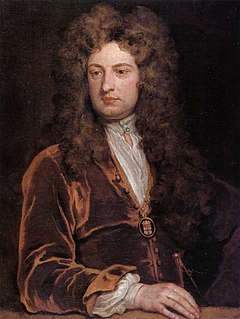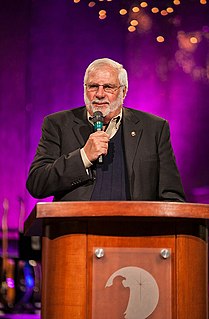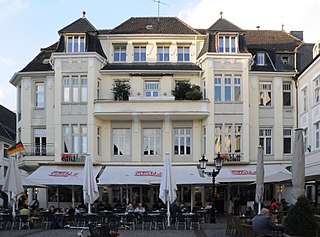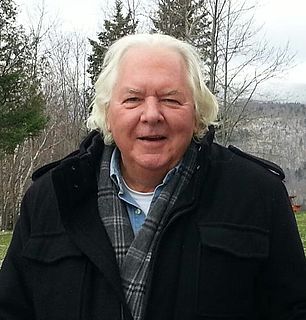A Quote by Charles Churchill
What it 't to us, if taxes rise or fall,
Thanks to our fortune, we pay none at all.
Let muckworms who in dirty acres deal,
Lament those hardships which we cannot feel,
His grace who smarts, may bellow if he please,
But must I bellow too, who sit at ease?
By custom safe, the poets' numbers flow,
Free as the light and air some years ago.
No statesman e'er will find it worth his pains
To tax our labours, and excise our brains.
Burthens like these with earthly buildings bear,
No tributes laid on castles in the air.
Quote Topics
Acres
Air
Bear
Brains
Buildings
Cannot
Castles
Castles In The Air
Custom
Deal
Dirty
Earthly
Ease
Fall
Feel
Find
Flow
Fortune
Free
Grace
Hardships
His
Laid
Lament
Light
Like
May
Must
None
Numbers
Our
Pains
Pay
Please
Poets
Rise
Safe
Sit
Some
Statesman
Tax
Taxes
Thanks
Those
Too
Us
We Cannot
Which
Will
Worth
Years
Years Ago
Related Quotes
It may be that the human race is not ready for freedom. The air of liberty may be too rarefied for us to breathe... The paradox seems to be, as Socrates demonstrated long ago, that the truly free individual is free only to the extent of his own self-mastery. While those who will not govern themselves are condemned to find masters to govern over them.
We cannot find God without God. We cannot reach God without God. We cannot satisfy God without God - which is another way of saying that all our seeking will fall short unless God starts and finishes the search. The decisive part of our seeking is not our human ascent to God, but His descent to us. Without God's descent there is no human ascent. The secret of the quest lies not in our brilliance but in His grace.
Life, as we find it, is too hard for us; it brings us too many pains, disappointments and impossible tasks. In order to bear it we cannot dispense with palliative measures... There are perhaps three such measures: powerful deflections, which cause us to make light of our misery; substitutive satisfactions, which diminish it; and intoxicating substances, which make us insensible to it.
Let us not be blind to our differences-but let us also direct attention to our common interests and to the means by which those differences can be resolved. And if we cannot end our differences, at least we can help make the world safe for diversity. For, in the final analysis, our most common link is that we all inhabit this small planet. We all breathe the same air. We all cherish our children's future. And we are all mortal.
We have been discussing sin and the carnal nature from which disciples are getting free. However, we cannot get free by our own strength from these things. It takes our will to want to get free in order to please the Lord and be delivered from what is bringing so much death upon the world. However, we need God's grace and His power to live free of these things.
Our aim - our only aim - is to be at home in Christ. He's not a roadside park or hotel room. He's our permanent mailing address. Christ is our home. He's our place of refuge and security. We're comfortable in his presence, free to be our authentic selves. We know our way around in him. We know his heart and his ways. We rest in him, find our nourishment in him. His roof of grace protects us from storms of guilt. His walls of providence secure us from destructive winds. His fireplace warms us during the lonely winters of life. We linger in the abode of Christ and never leave.
Workers for Christ are never to think, much less to speak, of failure in their work. The Lord Jesus is our efficiency in all things; His Spirit is to be our inspiration; and as we place ourselves in His hands, to be channels of light, our means of doing good will never be exhausted. We may draw upon His fulness, and receive of that grace which has no limit.
Let none, however difficult the circumstances, consider himself as debarred from the way of holiness. Have we but God and the cross of Christ, we have the means for becoming altogether holy in our walk and conversation. What dungeon is there that can shut us out from this? Only let us use the present location and means faithfully and truly, taking them from God's hand, and we shall find him able to free us from all that is really a hindrance. Let us each one desire to be a saint in his own place and calling, instead of building 'castles in the air' of future holiness.
This is the amazing story of God’s grace. God saves us by His grace and transforms us more and more into the likeness of His Son by His grace. In all our trials and afflictions, He sustains and strengthens us by His grace. He calls us by grace to perform our own unique function within the Body of Christ. Then, again by grace, He gives to each of us the spiritual gifts necessary to fulfill our calling. As we serve Him, He makes that service acceptable to Himself by grace, and then rewards us a hundredfold by grace.
The things that most deserve our gratitude we just take for granted. Without air we cannot live for more than a minute or two. Everyday we are breathing in and breathing out, but do we ever feel grateful to the air? If we do not drink water, we cannot survive. Even our body is composed to a large extent of water.But do we give any value to water? Every morning when we open our eyes, we see the sun blessingfully offering us light and life-energy, which we badly need. But are we grateful to the sun?
Electronic brains may help us to use our heads but will not excuse us from that duty, and as to our hearts-cardiograms cannot diagnose what may be most ill about them, or confirm what may be best. The faithful woman and the versatile brave man, the wakeful intelligence open to inspiration or grace-these are still exemplary for our kind, as they always were and always will be.
I believe that, seven generations beyond us, those who look back on our time will find that it was the cry of the trees that helped to restart the dreaming and foster the understanding that we must dream not only for ourselves but also for our communities and for all that shares life with us in our fragile bubble of air.






































